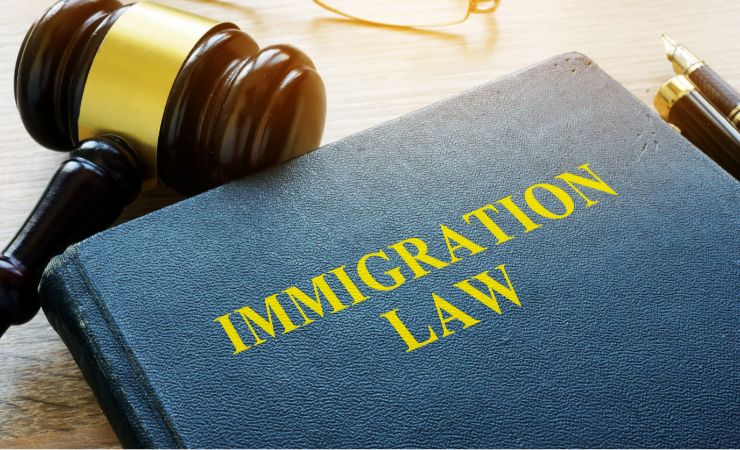When it comes to studying abroad, some countries are known for their relatively easier visa processes for international students. These countries have streamlined visa policies and student-friendly immigration systems that facilitate the application and approval process. While individual circumstances may vary, here are some countries often considered easier in terms of visa requirements for students:
- Canada: Canada is known for its welcoming approach to international students. The country offers a streamlined study permit application process, with clear guidelines and online application systems. The Canadian government has implemented policies to attract international students, providing them with opportunities to study and work during their stay.
- Germany: Germany is a popular destination for international students due to its high-quality education system and relatively straightforward visa process. The country has a dedicated student visa category, and many universities provide assistance to international students with their visa applications. Additionally, Germany offers post-study work opportunities for graduates to explore career prospects.
- Australia: Australia has a simplified student visa process known as the Student Visa (Subclass 500). This visa category encompasses most study programs and allows students to work part-time during their studies. The Australian government has made efforts to streamline the application process and provide extensive information for prospective students.
- Ireland: Ireland has a straightforward student visa process, particularly for non-European Union (EU) students. The country offers a dedicated student visa program that allows students to work part-time while pursuing their studies. Ireland’s friendly and inclusive environment makes it an attractive choice for international students.
- New Zealand: New Zealand has a well-defined and student-friendly visa system. The country offers the Student Visa, which allows international students to work part-time during the academic year and full-time during scheduled breaks. New Zealand prioritizes the safety and well-being of international students, providing a supportive environment for their educational journey.
- Netherlands: The Netherlands has a streamlined visa process for international students. The country offers the Residence Permit for Study, allowing students to work part-time alongside their studies. The Netherlands is renowned for its high-quality education, vibrant student life, and welcoming attitude toward international students.
While these countries are generally considered easier in terms of visa processes for students, it is essential to conduct thorough research and familiarize yourself with specific requirements and policies. Visa regulations may change, and individual circumstances can impact the visa application process. It is recommended to consult official government websites, embassies, and relevant immigration authorities for the most up-to-date and accurate information regarding student visas in your desired country of study.
When it comes to applying for a visa, certain steps can make the process smoother and more straightforward. While visa requirements and processes vary by country and individual circumstances, here are some general tips that can help facilitate the visa application process:
- Thoroughly research visa requirements: Start by understanding the specific visa requirements for the country you plan to visit. Visit the official website of the embassy or consulate of the destination country to gather accurate and up-to-date information. Pay close attention to documents required, eligibility criteria, and any specific application forms or procedures.
- Plan ahead and apply early: Begin the visa application process well in advance to allow ample time for gathering necessary documents, completing application forms, and booking appointments. Applying early helps avoid any last-minute complications or delays that may arise.
- Organize required documents: Create a checklist of the documents needed for your visa application. This may include passport, photographs, proof of financial resources, acceptance letter from the educational institution, travel insurance, accommodation details, and other supporting documents specific to your visa category. Ensure that all documents are up to date, properly filled out, and meet the requirements set by the destination country.
- Seek assistance if needed: If you find the visa application process complex or confusing, consider seeking guidance from professionals. Educational advisors, immigration consultants, or visa application centers can provide valuable assistance and ensure that your application is accurate and complete.
- Follow instructions carefully: Read and follow the instructions provided by the embassy or consulate meticulously. Pay attention to specific guidelines related to document formats, fees, appointment scheduling, and any additional requirements. Failure to comply with instructions can lead to delays or even rejection of the visa application.
- Be truthful and transparent: Provide accurate and honest information throughout the visa application process. Falsifying information or submitting fraudulent documents can have severe consequences, including being banned from entering the country in the future.
- Maintain open communication: If you have any questions or concerns during the application process, reach out to the embassy or consulate for clarification. Clear communication can help address any issues promptly and ensure a smooth application process.
- Keep copies of all documents: Make copies of all the documents you submit with your visa application. This includes application forms, financial documents, and any correspondence with the embassy or consulate. Having copies can be helpful in case any documents are misplaced or if you need to refer to them later.
Remember, these tips provide general guidance, and it’s important to adapt them to the specific requirements and processes of the country you are applying for a visa. Always refer to official sources and consult with the relevant embassy or consulate for the most accurate and up-to-date information.
